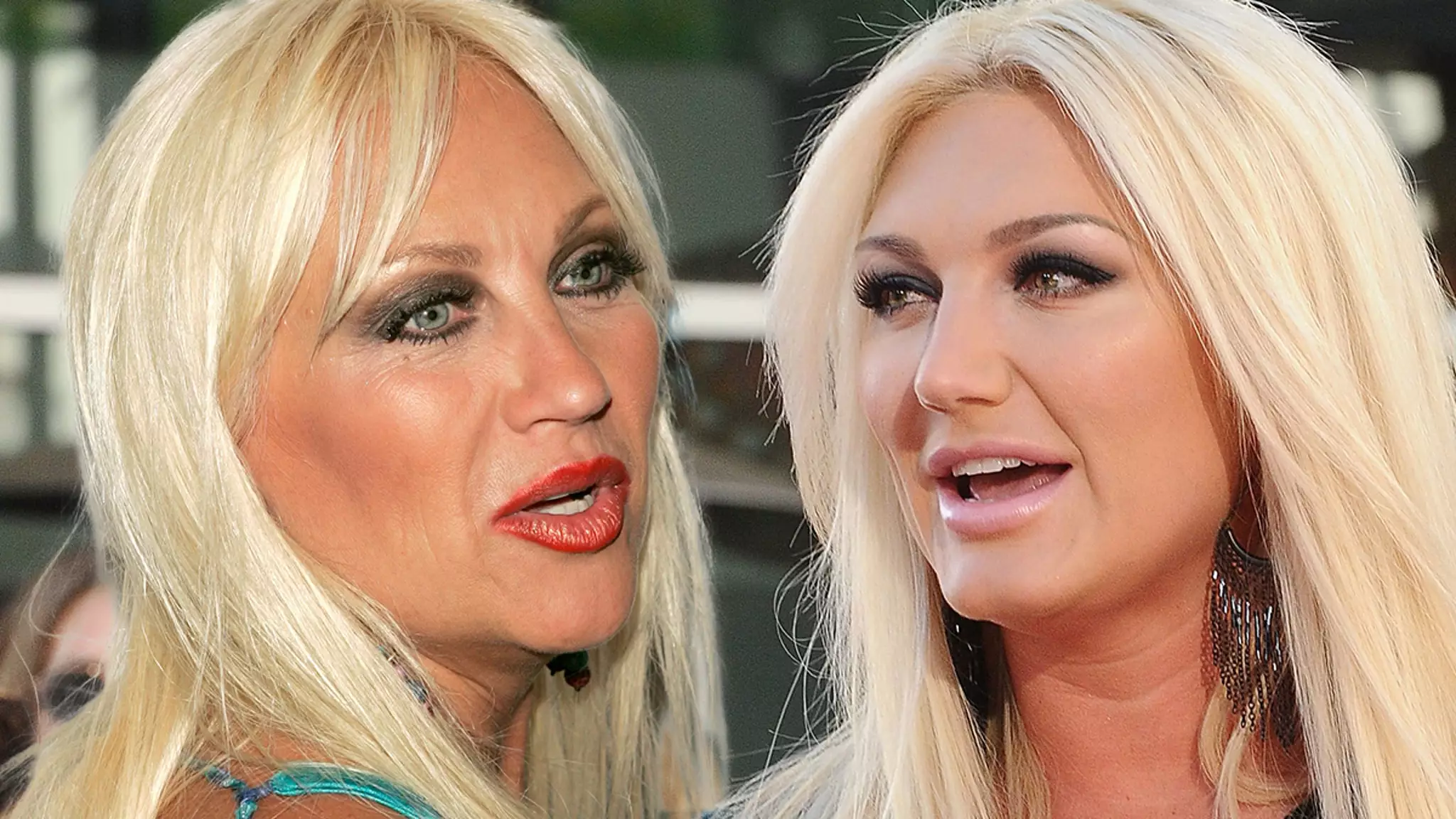In an era where family turmoil often spills into the public arena, few stories capture the bitter essence of familial discord quite like the current feud between Brooke Hogan and her mother, Linda Hogan. The exchange of accusations and counter-accusations illustrates not just the depths of their estrangement but sheds light on the intricate and often damaging dynamics of parent-child relationships. The latest volley in this family saga features compliments of social media, where Brooke recently challenged her mother’s claims in a detailed Instagram post. This digital confrontation raises critical questions about authenticity, memory, and the power of narrative.
Brooke’s response to Linda’s assertion of narcissism is particularly striking; she paints herself as an unwilling participant in this emotional warfare. Her insistence that she’s neither the originator nor the aggressor in this conflict puts the spotlight on the often blurry line distinguishing personal truth from public perception. By showcasing a photograph of the moment her mother met her husband—contradicting Linda’s claims of estrangement—Brooke delves into the realm of what some might call “receipts” in the social media age. The importance of documented evidence in these familial battles can’t be overstated; it serves as a weapon and shield in equal measure.
Legacy of Abuse and Accountability
In response, Linda Hogan vehemently denies any allegations of abuse, choosing instead to brand her daughter as a narcissist—a sentiment that she claims runs in the family. Linda’s defense is complicated by her admission that, while possibly having spanked Brooke once or twice, she never engaged in the systemic abuse that Brooke describes. Yet, her assertion that Brooke should have documented her experiences raises an unsettling topic: accountability in a parent-child relationship. How often do parents dismiss painful experiences as exaggerated or fabricated based on their own perspectives?
Linda’s claim of having been a victim, particularly in alleging that Brooke once caused her physical harm while allegedly intoxicated, adds another layer of complexity to an already convoluted narrative. It underscores the real dangers posed by familial disputes that evolve into a contest of who can out-victimize the other. The question then arises: at what point does accountability morph into a culture of blame?
The Media as the Courtroom
The current rift has quickly turned into a media spectacle, transforming social media platforms into a courtroom where public opinion is the jury. Linda’s comment about being “done defending herself in the court of public opinion” resonates with the reality of modern celebrity life, where personal grievances are often played out in public forums. Each social media post is a strategic move in a drawn-out battle for narrative control. It illustrates an unfortunate truth of our time: personal suffering can be monetized and politicized.
Furthermore, Linda’s assertion that she doesn’t feel the need to defend her actions suggests a profound disconnect not only between her and Brooke but also between their experiences. Family matters often require nuance and subtlety that a one-dimensional post cannot encapsulate. Such issues invariably get lost in translation, leading to a narrative fraught with discrepancies.
Kaleidoscope of Family Dynamics
Underneath this contentious dialogue lies a more significant commentary on family dynamics in a celebrity context. Brooke having sided with her father during the infamous divorce likely added layers to an already fragile relationship with her mother. The feeling of loyalty often complicates familial bonds and can lead to long-lasting estrangements. Brooke’s retort regarding her mother’s treatment—labeled as “EXTREMELY” abusive—doesn’t merely represent a daughter’s perspective but rather a culmination of years of accumulated feelings and grievances built up as a result of fractured family alliances.
Both Brooke and Linda seem entrenched in a cycle of blame and miscommunication that further alienates them from each other. Instead of seeking understanding, each seems poised to protect their own narrative, suggesting that the family has become a mere backdrop for their individual stories.
In the midst of all this chaos, one must wonder: is there a path forward for the Hogan women, or are they destined to spiral into an endless cycle of accusation? Each social media post they release brings them closer to revealing both their truths and their deep-rooted issues, making us all observers in this battle fraught with emotional stakes.

